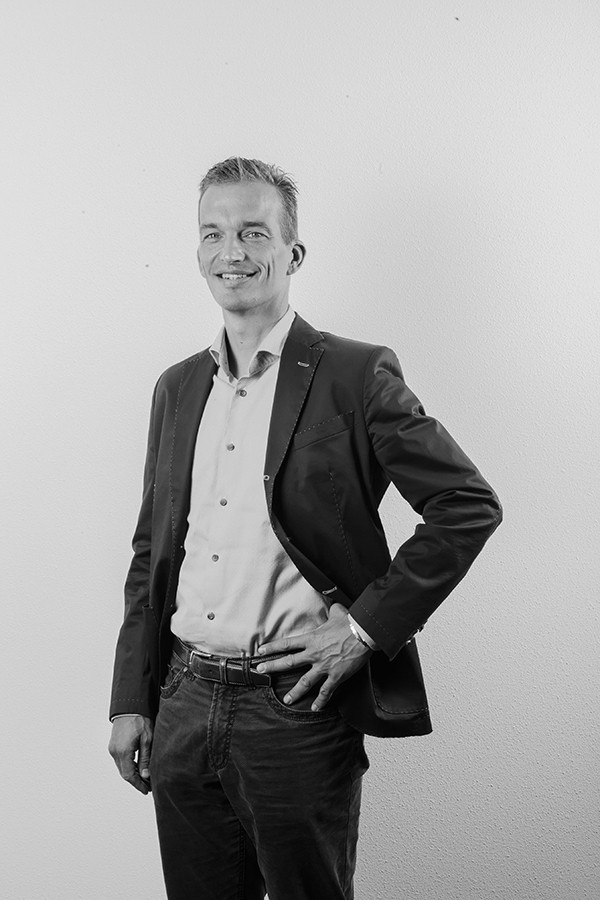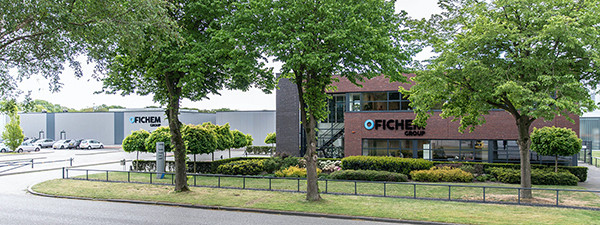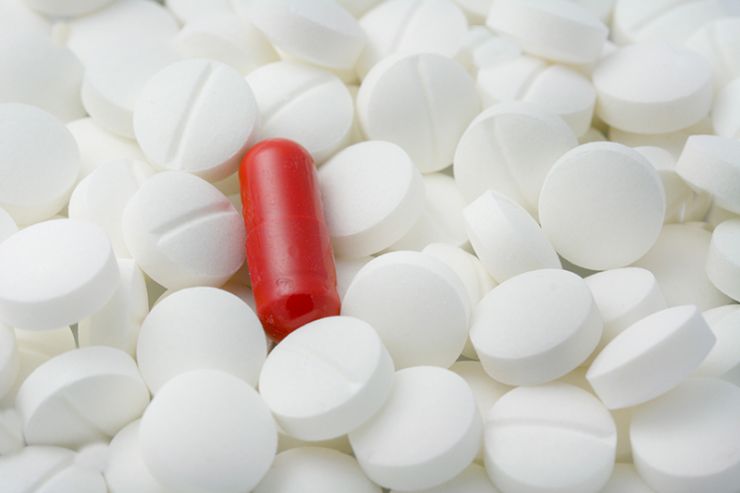Customer testimonial: Weite Oldenziel from the Ofichem Group
As a specialist in print and packaging, De Budelse naturally follows the industry for which it prints packaging and leaflets closely: the pharmaceutical industry. The Ofichem Group from Ter Apel recently acquired the bankrupt InnoGenerics from Leiden. The only generic medicine manufacturer in the Netherlands has now come into the hands of the company that produces raw materials for medicines. De Budelse worked for both companies in the past. A good reason for Hans Geurtjens to talk to CEO Weite Oldenziel about the developments in the industry.
Innogenerics is making a fresh start under the name Ofimedicine. The focus is mainly on producing and expanding the current range of high-quality generic medicines with its own raw materials, with the aim of improving availability, reliability and sustainability. ‘After the bankruptcy of InnoGenerics, the entire production of tablets came to a standstill’, Weite Oldenziel begins. ‘It took some time before we were back at full speed. The production rate had to increase in order to write black figures. Fortunately, we were able to keep many employees on board in the production process itself and many customers have also remained loyal to us.’

Production to China
Weite Oldenziel has been the director/owner of the Ofichem Group for sixteen years, which now includes six companies with the launch of Ofimedicine. The developments in the Dutch pharmaceutical industry are close to the heart of the former pharmacist and PhD candidate in neurochemistry. “Originally, Ofichem is a production company of API’S (Active Pharmaceutical Ingredient), the substance that causes the effect of medicines,” he continues. ‘Around the turn of the century, we had a hard time because eighty percent of world production was moving to China.

Weite Oldenziel, CEO Ofichem Group
Parent company with subsidiaries
The Ofichem Group was forced to develop other activities, which over the years came to be separate operating companies under the flag of the parent company. ‘We are still involved in commercial production’, Weite Oldenziel summarizes. ‘We also focus on development and have 3 trading companies on board. Everything we do is centered around APIs. With the relaunch of InnoGenerics, we also produce medicines ourselves. Our ambition is to solve the major shortage of generic medicines by expanding both our portfolio and customers.’

High volumes, short runs
Without Weite Oldenziel knowing it in detail, De Budelse and two of its operating companies have known each other for some time. In the past, De Budelse produced packaging for Ofipharma and high-volume leaflets for InnoGenerics. "As a company, we specialize in high volumes, short runs," explains Hans Geurtjens. "We believe that with just-in-time deliveries we contribute to reducing stocks in the chain. There is no point in stocking packaging if, for example, legislation and regulations change so quickly. In the ultimate case, our customers' ERP system is aligned with ours. This gives us the opportunity to respond to current changes, where high delivery reliability is an important prerequisite.’
Let's start with a blank page and not judge each other on previous experiences
Role of health insurers
Weite Oldenziel nods in agreement. In his view, it is not always easy for producers of both raw materials and medicines to respond to current events. For example, it is a thorn in his side that the role of health insurers in healthcare is so great. "As producers, we have no influence on the choices that a health insurer makes," he explains. "It is my experience that the focus is always on the price. I have a problem with that, because I am happy to pay a little more for paracetamol or ibuprofen if I know that those products come from the Netherlands." Hans Geurtjens completely agrees with him: "I am convinced that many Dutch people would make the same choice if communication about this were much more transparent.’
According to Weite Oldenziel, the medicine shortages in the Netherlands are taking on alarming proportions. It seems as if this trend cannot be stopped. For example, several pharmaceutical companies have been fined by the Health and Youth Care Inspectorate because they did not report a threatening shortage of medicines in time. ‘The vulnerability in the chain is increasing’, he notes with concern. ‘The number of registrations and potential producers per product is decreasing. There is a good chance that this will lead to scarcity. Health insurers indicate that they do not see the problem that way, but I am convinced that the time has come to press the reset button.’
Risk-averse behavior
On behalf of De Budelse, Hans Geurtjens regularly visited InnoGenerics, where Ofimedicine is now housed. The production environment was off-limits, which is why he wonders whether the production facilities are of sufficient quality to realize the ambitions. ‘We have a high-quality pharmaceutical factory in which a lot has been invested in the past’, Weite Oldenziel answers his question. ‘The average pharmacist in the Netherlands focuses very strongly on risk-averse behavior. The question is how useful this is. The factory has already been audited many times for generic products such as paracetamol and ibuprofen. For these productions we have state-of-the-art equipment. If we are asked to produce for example a new innovative American medicine under patent, we are not yet prepared for that.’
Gap in artwork
Hans Geurtjens has experienced that the collaboration with the former InnoGenerics is quite chaotic during a takeover. In his view, checking the artwork is a time-consuming factor. Weite Oldenziel recognizes that. ‘There is a real gap in the area of artwork’, he explains. ‘This component is often neglected. It is of course not a good thing if a customer service employee also does the artwork. We need to fill this vacancy as soon as possible. At the same time, it is good to break existing patterns and hire an experienced specialist such as De Budelse to brainstorm about this.’
The same language
It is important for De Budelse to know what expertise is available in Leiden. ‘Implementing changes in artwork for pharmaceuticals is a difficult task’, Hans Geurtjens states from experience. ‘I wonder how useful that is sometimes. Think, for example, of the number of printing runs required to build up the colours of packaging. Of course, colour adjustments in packaging cannot be compared to changes in the formulation of medicines. That is why it is good to let go of risk-averse behaviour in this area. In order to make progress together, it is much more important that we speak the same language.’ Weite Oldenziel nods in agreement. ‘I think it is a good idea to continue talking to each other about this. I share your opinion that it is good to start with a blank page and not judge each other on previous experiences.’



